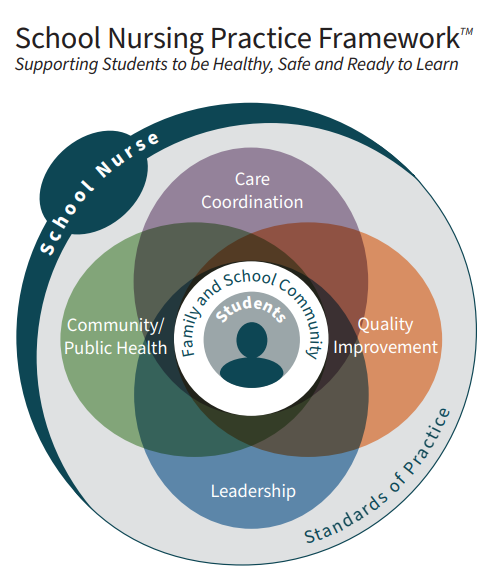Health Services Available At All Schools
A nurse is available at all schools. They provide the following services:
Medication Administration
Medications that need to be given during the school day must be administered by the nurse in the nurse’s office.Learn More
All medications must be brought to the nurse by a parent or guardian and must be in the original container.
DO NOT SEND MEDICATIONS IN WITH YOUR CHILD.
Paperwork must be completed each year that includes a physician prescription and in most cases, an action plan - see below for action plans and medication forms. This includes OTC medications such as eye drops, cough drops and ointments.Illness and First Aid
School health office nurses provide care to students who become injured or ill while at school. If further care is required or a student needs to go home, parents will be contacted. In the event of an emergency, 911 will be called and student will be transported to the hospital by ambulance.
Please provide the school with up-to-date emergency numbers in the event school officials need to reach you during the school day.Mandatory Health Screenings
Hearing: Grades K-3, 7, 10
Vision: Grades K-5, 7, 10
Scoliosis: Grades 5-9
Height and Weight: Grades K, 1, 4, 7, 10
BMI: Grades 1, 4, 7, 10
SBIRT: Grades :7 & 9Collaboration
Nurse communicate and collaborate with a broad range of partners, including parents, teachers, coaches, and many types of health providers. They participate in school-based interdisciplinary teams to identify and support students.
Nursing Staff
List of Services
-
Amy C. Kasper M.D., F.A.A.P. SCHOOL PHYSICIANAmy C. Kasper M.D., F.A.A.P.
-
Jennifer Puhalski, BSN, RN, NCSN Director of Health Services - 279-3860Jennifer Puhalski, BSN, RN, NCSN
-
Mary Jennison, BSN,RN,NCSN Green Meadows School - 566-8176Mary Jennison, BSN,RN,NCSN
-
Susan Pirog, BSN,RN Mile Tree School - 596-9581Susan Pirog, BSN,RN
-
Shelby Franco, BSN, RN Minnechaug Reg. H.S. - 279-3815Shelby Franco, BSN, RN
-
Krystie Minahan, BSN, RN Minnechaug Reg. H.S. - 279-3815Krystie Minahan, BSN, RN
-
Karla dos Santos, BSN, RN ,NCSN Soule Road School - 596-9713Karla dos Santos, BSN, RN ,NCSN
-
Kara Hatch, BSN, RN Stony Hill School - 596-9583Kara Hatch, BSN, RN
-
Misty Foss Trombly, BSN, RN, NCSN Wilbraham Middle School - 599-1857Misty Foss Trombly, BSN, RN, NCSN
-
Kathleen Woytowicz, BSN, RN, NCSN Wilbraham Middle School - 599-1857Kathleen Woytowicz, BSN, RN, NCSN
-
Shyrka Sanchez, LPN Transition Program Minnechaug Regional H.S.Shyrka Sanchez, LPN
-
Amy LoMascolo BSN, RN District Nurse Care Coordinator - 279-3864Amy LoMascolo BSN, RN



